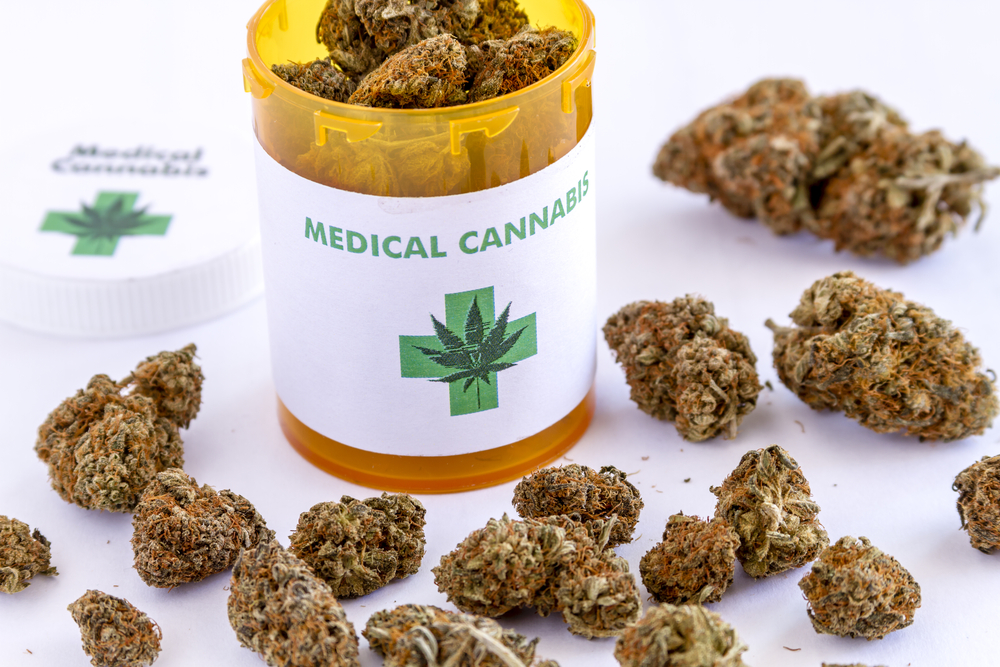
A historical moment for cannabis legalization happened in December 2020. The Marijuana Opportunity, Reinvestment, and Expungement Act (MORE Act) passed the U.S. House of Representatives. Leading policymakers had given it a less than 10% chance of passing the House. And when it did, it represented the furthest that any cannabis decriminalization and legalization proposition had progressed in U.S. history. Progress in 2021 may also be historic.
The celebration of the passing vote in the U.S. House of Representatives fell short, waiting for the Senate to approve the Bill. Currently, the Republican-controlled Senate is steadfastly against the legalization of cannabis and the MORE Act’s ratification. However, as Senate runoffs are scheduled for early January, anyone can guess whether legalization will happen in 2021.
Among the political tribulations and catastrophic impact of the pandemic on social and economic policy, cannabis had a ‘big year’ in progress and growth in 2020. A change in federal leadership and continued financial pressure on states coping with Covid-19 may result in some surprising changes to marijuana legalization in 2021.
The national cannabis industry leaders, investors, and residents of the United States anticipate substantial progress in legalization. And relief in the form of decriminalization and mass expungement of citizens with personal-use cannabis charges. Will 2021 be the year that cannabis goes mainstream? Let’s review some of the powerful influences that may see legalization happen in 2021.

Every country worldwide is struggling with the growing costs of the Covid-19 pandemic, from providing stimulus funds to assist workers unemployed by the crisis to skyrocketing healthcare expenses. With more than 328 million residents in the United States, rapidly growing infection rates, and a national deficit, America is heading into 2021 in crisis mode.
A recent study published in the American Medical Associate Journal was co-authored by the former Treasury Secretary, Lawrence Summers. Harvard University economist David Cutler also contributed to the research and estimate on total costs of the Covid-19 pandemic in the United States.
The value of the loss is theoretical but viewed as highly accurate. It includes the loss of human life, disability from Covid-19 health complications, healthcare costs, and other critical economic factors. Over the next decade, Covid-19 is expected to cost $16 trillion in losses in the United States alone.
The current national deficit (at the time of writing) was $27,641,349,344,153. The national debt burden per American (or taxpayer share) is $893,000. Borrowing more money may not be possible for the United States because of global economic factors. Countries like China, who are a prime lender, are contracting on foreign debt as they struggle with their fiscal crises during the pandemic.
What does this all mean? America needs money. Sooner rather than later. And borrowing is a worse option to contribute to the deficit than it would be to increase tax revenues. With millions of American’s unemployed and on pandemic support, income tax revenues are set to decline in 2021 as the pandemic continues.
Legalizing cannabis could provide a forecasted $130 billion of tax revenue annually and create more than 1.6 million jobs. This value proposition alone places significant pressure on Congress, as U.S. lawmakers look for the resources they need to navigate the ongoing viral pandemic.
The vote to decriminalize cannabis from the United Nations only further supports that other countries are contemplating legalization’s tax benefits. It could be the injection of funds or the fiscal silver bullet that all nations need to win the battle against Covid-19 and save lives. And the financial resources to get national economies back on track, post-pandemic.
Read: “United Nations Follows WHO: Reschedules Cannabis.”

Twenty-six states in America have already legalized medical cannabis programs for doctor-supervised use. And several states are planning to send the matter to public vote through a state question in 2022. South Dakota made history during the November 3, 2020 election. The state legalized both medical cannabis and adult-use at the same time and was the first jurisdiction to do so.
With every new state that legalizes cannabis, it gets harder for federal lawmakers to legitimize the continued prohibition against marijuana. Other traditional arguments, such as increased criminal activity after legalization, have been debunked. States like Florida and Colorado have reported a significant reduction in Black Market cannabis production and distribution.
States are also moving ahead with the mass expungement of cannabis charges. The social equity movement to correct the arrest bias of people of color (POC) who have been arrested at 4x the rate of Caucasian citizens has fueled decriminalization.
The expungement of personal-use cannabis charges by first-time offenders would provide a reset and course correction for millions of Americans that would no longer be penalized because of a misdemeanor or felony charge. It would improve employment and educational funding opportunities and substantially benefit POC communities while diminishing the poverty rate.
The cannabis industry in America is growing rapidly. Expungement would also allow POC in America to be gainfully employed within the growing medical and adult-use sectors.

The Food and Drug Administration has only recently begun to approve research into the medicinal potential of cannabis in therapeutic care. For decades, medical researchers have been denied funding and access to cannabis for clinical studies. Thanks to the federal Schedule I classification of cannabis as a prohibited substance.
That presented a big legal contradiction. On the one hand, the Food and Drug Administration (FDA) continued to support the prohibition of cannabis. The rationale was that there was “insufficient evidence-based clinical research” to support the safe use of cannabis. Because there was not enough data to draw from, the FDA and DEA remained unmoved in their stance and policy.
But how could evidence-based clinical data be provided when health research funding for cannabis was not provided? Cannabis was also illegal to acquire for decades for clinical research, with few exceptions, namely the pharmaceutical industry, which rapidly developed synthetic prescription cannabis drugs.
The opinion is divided on the probability of the Medical Marijuana Research Act, which was introduced (and ratified by the House) simultaneously as the MORE Act. Both pieces of legislation will have to be reintroduced to the House a second time and the Senate in Congress’s next session in 2021.
The Senate will have to decide if financial resources can be allocated to decriminalize cannabis and advance medical marijuana therapeutics research. Some speculate that the Senate will not be willing to spend on implementing the MORE Act or the Medical Marijuana Research Act in lieu of Covid-19 stimulus and support funding. However, many believe that the financial benefit of increased tax revenues through federal legalization may be a powerful impetus for federal lawmakers.
Our friendly neighbors to the North have been managing a nationally legalized cannabis program since 2018. Granted that Canada has less than 10% of the United States’ overall population, no two countries are more similar culturally and economically. Arguably, if it has worked for Canada, the U.S. could safely and successfully follow the same model.
But we do not have to take Canada’s word for it. Transform is a highly respected think tank in Britain that evaluated cannabis reform laws in Canada. The method that Canada moved to regulate cannabis, the tax and economic structure, and the social impact of the legalization of marijuana.
Canada was one of the first countries to declare medical marijuana an ‘essential service’ in early March of 2020. This allowed dispensaries to stay open to serve patients. Several provinces have highly developed and regulated cannabis e-commerce websites where home delivery of weed, edibles, concentrates, vape carts, and supplies are streamlined—made easy and safe during the Covid-19 pandemic.
When you consider that Canada’s population was just over 37 million residents, the cannabis excise tax revenues are remarkable. From April 2019 to March 2020 alone, the Canadian federal government collected $32 million (CAD) or $23.7 million (USD) over the twelve months. And that is encouraging as American lawmakers look at budgetary strains and dwindling financial resources during the ongoing coronavirus health emergency.
The country we spent decades working with to stop the flow of cannabis and other illicit substances are preparing for a full 180° legal turn. In November 2020, Mexico announced that it was moving ahead with cannabis legalization. Not only that, but it plans on (eventually) becoming a legal exporter of raw and processed cannabis products.
Mexican lawmakers were full steam ahead until they decided to slow things down on December 15th, 2020. Regulators will be continuing, however, in 2021 to advance the legalization and decriminalization of cannabis. The Chamber of Deputies had a December 15, 2020 deadline from the Mexican Supreme Court to approve the law. However, they requested an extension to the end of April 2021.
The new cannabis laws in Mexico will allow any resident to have up to 28 grams (one ounce) of cannabis legally. Citizens will also be able to grow up to six plants at home. Licensing of cultivators and retailers will be conducted by a new (as yet unnamed) commission within the Health Department of Mexico.
For decades Mexico has been embroiled in the American “War On Drugs.” Authorities have felt they were losing the battle to cartels and criminal syndicates. By legalizing cannabis, Mexico hopes to diminish the black market for cannabis. And focus law enforcement resources harder on other drugs, such as cocaine and heroin production and trafficking.
Read: “America Squeezed Between Mexico and Canada on Federal Legalization.”

Since the 1950s and the racial motivation propagandizing of cannabis, people who consumed marijuana did so on the down-low. Part of the rich cannabis culture was developing jargon and code that helped keep illegal use of cannabis discreet. A protected language to help people avoid legal consequences for illicit cannabis use.
It is now understood that many people that chose to use cannabis were self-medicating independently. For various health conditions from anxiety and depression to chronic pain, epilepsy and muscle spasms, PTSD, and more.
The dawn of awareness and understanding of the root cause behind the opioid crisis in America also moved cannabis toward social acceptance. Suddenly America (and the world) began to evaluate the alarming and aggregate risks of long-term opioid use. And the life-threatening overdose and addiction potential of the prescription pain relievers.
But it is not only opioids that Americans have relied on, which may cause long-term damage. According to the Anxiety and Depression Association of America, the leading cause of disability in the U.S. for citizens aged 15 to 45 is depression. Major Depressive Disorders impact more than 16 million Americans or about 6.7% of the population.
There are almost eight million American adults (3.5% of the population) diagnosed with post-traumatic stress disorder (PTSD). And generalized anxiety disorders (the most common mental health illness) affects 40 million American adults aged 18 and older.
Doctor-supervised medical cannabis has successfully helped millions of Americans manage otherwise debilitating mental health symptoms. And for patients living with chronic pain and physiological symptoms, cannabis has provided a safer and more natural alternative therapeutic option.

Before Congress returns from the holiday break, Americans who actively support the legalization of cannabis can make their voices heard. Many organizations are working closely with lawmakers to encourage the ratification of the MORE Act.
Write a letter or sign petitions showing your support. Here are some of the leading cannabis advocacy groups that you can participate in to make your voice heard.
The upcoming 2021 year may bring the most life-changing transition of cannabis from an illicit drug to a controlled substance, similar to alcohol and tobacco products. Decades of advocacy and legal work have culminated to this point. As an American citizen, you can make a difference by becoming an advocate and activist for cannabis legalization.
Featured Image: fabianodp – Getty Images | Canva
No Information on MarijuanaDoctors.Com should be used to diagnose, treat, prevent or cure any disease or condition. You can view our Full Disclaimer here.